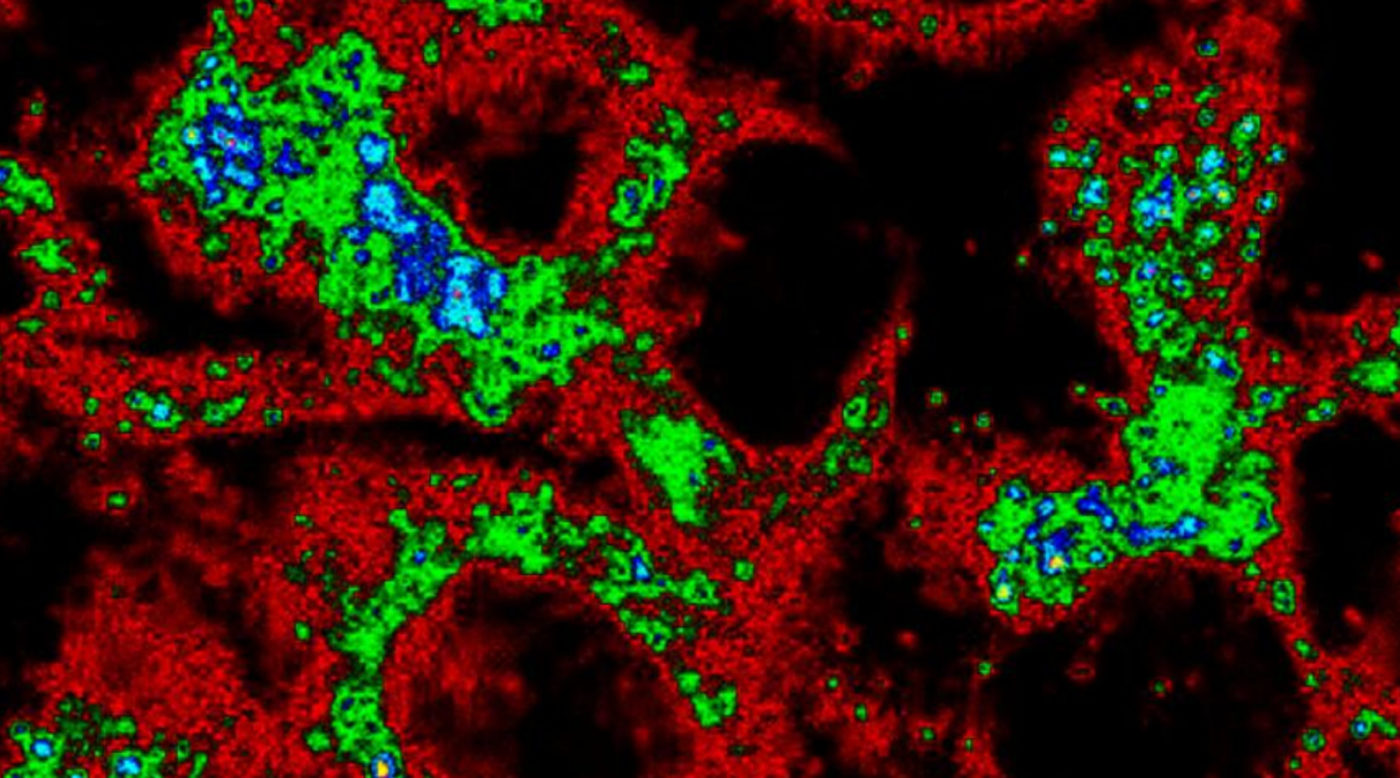News
Targeting cell surface proteins and copper in the fight against colorectal cancer
Published on July 29, 2020
By Fatéma Dodat
In some cases, taking the direct path is not the most effective. A study led by the team of Philippe Roux, in collaboration with the teams of Louis Gaboury and Sylvain Meloche of IRIC, indeed reveals that the oncogenic protein KRAS could be targeted indirectly. Recently published in Nature Communications, their results demonstrate that mutation of this oncogene modifies the expression of proteins at the surface of the cells that cover the internal villi of the intestine. This study offers new therapeutic opportunities for the treatment of colorectal cancer.
The KRAS oncogene is a protein involved in intracellular signaling and the response of cells to their environment. For three decades, scientists around the world have been trying to target this protein, which is frequently mutated in colorectal cancers.
However, targeting in a direct and effective way the mutated forms of KRAS has revealed unsuccessful due to the external structure of the oncogene, which is difficult to access from a molecular point of view, as it is devoid of sites where a drug could bind.
The investigators therefore displayed a different strategy to discover new cellular vulnerabilities and thus propose new therapeutic options for colorectal cancers harboring a KRAS mutation.
They developed an advanced proteomics technique allowing them to characterize cell-surface proteins and thus identify those that are specifically expressed at the surface of KRAS-mutated cancer cells.
With the collaboration of two teams in Toronto, they were able to identify the cell-surface protein ATP7A, a protein that transports copper, as an important molecule in the biology of colorectal cancers with a KRAS mutation.
In addition, they highlighted that colorectal tumors contain more intracellular copper when KRAS is mutated, and found that copper plays a major role in tumor progression using mouse models of colorectal cancer.
This study highlights the importance of studying cell-surface proteins, as they may prove to be promising therapeutic approaches. This study therefore proposes two new therapeutic options for colorectal cancers carrying a KRAS mutation, such as targeted therapy against the ATP7A protein or blocking the action of intracellular copper using therapeutic approaches that already exist.
Referenced study
Copper bioavailability is a KRAS-specific vulnerability in colorectal cancer. Nature Communications
Copper levels in cancer cells
